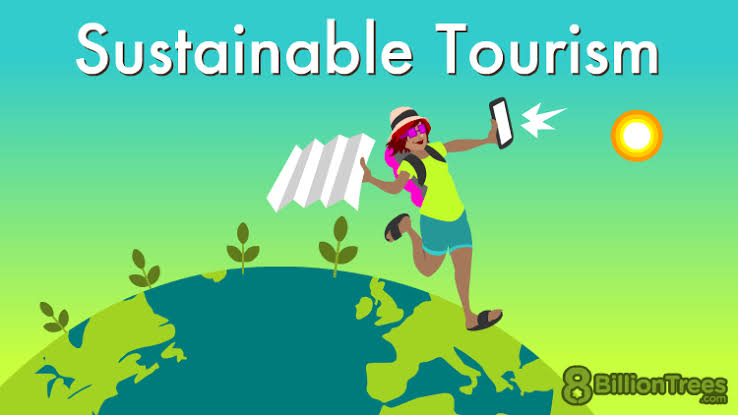Embracing a greener future for travel is what sustainable tourism is all about.
As people around the world pay more attention to protecting the environment, sustainable tourism has become an important issue for both tourists and people who work in the tourism business. Sustainable tourism tries to keep the bad effects of travel to a minimum while boosting the good effects on communities, economies, and landscapes. This way of doing things not only protects nature and cultural resources for future generations, but it also makes traveling more enjoyable.
**What is eco-friendly tourism?**
Sustainable tourism is a way of visiting that tries to meet the needs of both tourists and the places they visit. It includes things that travelers can do to help local economies, protect cultural heritage, and leave less of an impact on the earth. This idea comes from the idea of sustainability, which says that we should meet the needs of the present without making it harder for future generations to do the same.

Travel smart, travel green: Every small step towards sustainability helps preserve the beauty of our world for future explorers.
**Effect on the Environment**
One of the main goals of sustainable tourism is to make travel less harmful to the earth. Among other things, this means cutting down on carbon pollution, waste, and energy and water use. Many travelers are now choosing eco-friendly ways to get around, like trains or electric cars, over standard ways like flying or renting a car. In addition, more and more places are using green practices, such as lighting that uses less energy, recycling programs, and energy sources that don’t use fossil fuels.
**Helping Out Local Communities**
Supporting local communities is another important part of sustainable tourism. This means picking places to stay, tours, and events that are owned and run by people who live in the area. Travelers help the local economy by doing this, which leads to more jobs and business possibilities. Getting to know local artists, farmers, and guides is also a great way for tourists to experience real culture interactions and help keep traditional crafts and practices alive.
Preservation of Culture
Another important part of sustainable tourism is protecting and honoring traditional heritage. People who travel are told to learn about and enjoy the past and traditions of the places they go. This means being responsible by doing things like dressing properly, asking permission before taking pictures, and honoring the traditions and customs of the area. Sustainable tourism helps protect and celebrate the unique identities of different communities by making people more aware of other cultures.
“Useful Tips for Eco-Friendly Travel”
There are a few useful steps that people who want to promote healthy tourism can think about. First, pick places to stay and places to visit that have been certified for their social and environmental practices, like Green Key or EarthCheck. Next, choose activities that don’t hurt the environment too much, like camping or watching wildlife, and stay away from activities that take advantage of animals or natural resources. Be aware of your trash by reducing, reusing, and recycling as much as you can. You might also want to offset your carbon footprint through reputable programs.

Wander with purpose: Discover how sustainable tourism makes every adventure count for the planet and local communities.
**The Future of Eco-Friendly Tourism**
Responsible travel is becoming more and more important to both travelers and people who work in the tourism business, which is good news for the future of sustainable tourism. Businesses, groups, and governments are working together to make and use policies and programs that help the tourism industry be more environmentally friendly. The tourism business can be a strong force for good as more people learn about and use environmentally friendly methods.
That being said, ecological tourism is a way to make travel more responsible and fun. Travelers can help protect the natural beauty and cultural diversity of places all over the world by making smart decisions and supporting eco-friendly practices. Going forward, it will be important to be environmentally friendly so that tourism continues to help people and the environment for many years to come.